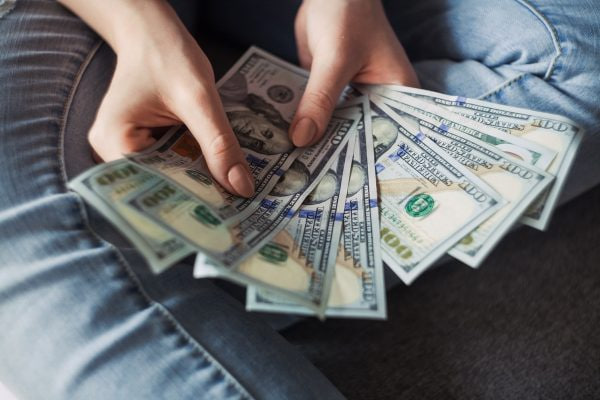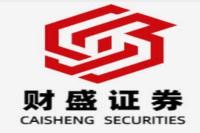South Korea's Presidential Investigation: A Deep Dive into the Political Turmoil
Meta Description: South Korea's political landscape is shaken by an investigation into President Yoon Suk Yeol. This in-depth analysis explores the details, implications, and potential outcomes of this high-stakes drama, examining the legal procedures, public reaction, and broader political context. #SouthKorea #YoonSukYeol #PresidentialInvestigation #KoreanPolitics #PoliticalCrisis
Imagine this: the head of state, the person entrusted with the nation's fate, summoned for questioning. This isn't some far-off, fictional drama; this is the reality unfolding in South Korea. The summons served to President Yoon Suk Yeol by the High-Ranking Public Officials' Investigation Office (HROIO) – a body known for its sharp teeth and even sharper focus – sends shockwaves through the already tumultuous political waters. This isn't just another political squabble; it's a full-blown constitutional crisis brewing, a captivating saga that throws into sharp relief the complexities of South Korean politics and the delicate balance of power. What are the underlying issues at play? What are the potential repercussions for the nation? Will this lead to impeachment? These are the questions burning on everyone's minds, not just in Seoul, but across the globe. This isn't just about a president facing scrutiny; it’s about the future of South Korean democracy, the integrity of its institutions, and the stability of its geopolitical standing. Prepare for a deep dive into the heart of the matter, an exploration that peels back the layers of this gripping political thriller unfolding before our very eyes. We'll analyze the legal framework, the political maneuvering, the public sentiment, and the potential consequences – all while providing a nuanced perspective, grounded in factual reporting and informed by years of observing the intricacies of Korean political dynamics. Get ready to unravel the enigma of South Korea’s presidential investigation – a story with far-reaching implications for the nation and the world.
The High-Ranking Public Officials' Investigation Office (HROIO) and its Mandate
The HROIO, often a shadowy figure in the background of Korean politics, suddenly finds itself center stage. This independent investigative body, established to probe allegations of corruption and misconduct against high-ranking officials, isn't known for pulling punches. Its power extends even to the president, a testament to the checks and balances – at least in theory – within the Korean system. The HROIO's investigation into President Yoon Suk Yeol, a high-profile case with potentially seismic consequences, underscores its expanding influence and its willingness to confront even the most powerful figures in the land. This bold move highlights a critical aspect of the Korean political system: accountability, even at the very highest levels. But the question remains: will the HROIO's investigation be fair, impartial, and transparent? Or will political pressures and potential biases cloud its judgment, leading to a questionable outcome? The international community, along with the South Korean populace, will be watching with bated breath.
President Yoon's summons isn't just a legal formality; it's a blatant challenge to his authority, a public airing of grievances, and a potential catalyst for significant political upheaval. The specific accusations against the president, while yet to be fully revealed in their entirety, are likely to be complex and multifaceted. The investigation itself promises to be a drawn-out affair, involving numerous witnesses, mountains of documentation, and potentially intense political maneuvering.
The Legal Framework and the Presidential Immunity Debate
The South Korean Constitution grants the president certain immunities, but these aren't absolute. The key question is whether the alleged offenses fall under the scope of these immunities, a matter that will likely be debated vigorously in the courts and in the public sphere. Legal experts are already weighing in, offering varying interpretations of the relevant constitutional and statutory provisions. This legal battle, fought in the court of public opinion as well as the formal legal arena, is a critical aspect of the entire saga.
The process itself, from the initial investigation to any potential trial, will be meticulously documented and scrutinised. Every step will be analyzed by legal scholars, political analysts, and the media, creating a level of transparency – albeit a potentially biased one – unprecedented in recent Korean presidential history.
Public Reaction and Political Fallout
The public reaction has been, understandably, highly polarized. Supporters of the president view the investigation as a politically motivated witch-hunt, a cynical attempt to undermine his authority and destabilize the government. Opponents, however, see it as a necessary step to ensure accountability and uphold the rule of law. This deep societal division underscores the highly charged political climate and the profound implications of this investigation. Social media has become a battleground, with competing narratives and accusations flying thick and fast. News outlets are reporting breathlessly on every twist and turn, fueling the public’s already intense interest.
The political consequences could be significant. Depending on the outcome of the investigation, the president might face impeachment, resignation, or even criminal charges. Any of these scenarios would trigger a period of considerable instability and uncertainty, potentially impacting South Korea's domestic and foreign policies. The ripple effects across the Asia-Pacific region could be substantial, given South Korea's strategic importance.
International Implications
Given South Korea's role in the global geopolitical landscape, this domestic crisis carries significant international implications. Concerns about political instability could affect investor confidence, impacting economic growth. Furthermore, the crisis could affect South Korea's alliances and its foreign policy initiatives. The international community is closely monitoring the situation, waiting to see how this unfolding drama will shape South Korea's future.
Table: Potential Outcomes and Their Implications
| Outcome | Domestic Implications | International Implications |
|----------------------------------------|---------------------------------------------------------|-------------------------------------------------------|
| Presidential Impeachment | Political instability, potential snap elections, social unrest | Reduced investor confidence, potential foreign policy shifts |
| Presidential Resignation | Similar to impeachment, but potentially less disruptive | Similar to impeachment |
| Acquittal | Reinforcement of presidential authority, but lingering distrust | Potential boost to investor confidence, but lingering concerns |
| Criminal Charges and Conviction | Significant political upheaval, deep societal division | Severe damage to South Korea's international reputation |
Frequently Asked Questions (FAQs)
Q1: What is the High-Ranking Public Officials' Investigation Office (HROIO)?
A1: The HROIO is an independent investigative body in South Korea tasked with investigating alleged corruption and misconduct among high-ranking government officials. Its jurisdiction extends to the president, albeit with constitutional limitations.
Q2: What are the allegations against President Yoon Suk Yeol?
A2: The specific allegations haven't been fully disclosed publicly, but the investigation suggests serious misconduct related to his previous actions and potentially during his current presidency. Further details will likely emerge throughout the investigation.
Q3: What is the process of impeachment in South Korea?
A3: Impeachment requires a majority vote in the National Assembly, followed by a trial in the Constitutional Court. A two-thirds vote in the Constitutional Court is required for removal from office.
Q4: What are the potential economic consequences?
A4: Political instability can deter foreign investment and negatively impact investor confidence, leading to possible economic slowdown and market volatility.
Q5: How is the international community reacting?
A5: The international community is closely monitoring the situation, expressing concerns about political stability and its potential impact on regional security and economic relations.
Q6: What is the likely timeframe for the investigation?
A6: It's difficult to predict an exact timeframe. These high-profile investigations can stretch over months, even years, depending on the complexity of the case and the cooperation of involved parties.
Conclusion: A Nation on the Brink?
The investigation into President Yoon Suk Yeol represents a critical juncture in South Korean history. The outcome will shape the nation’s political landscape for years to come, influencing its domestic stability, its international relations, and its economic trajectory. While the specifics remain shrouded in uncertainty, the intensity of the situation, the gravity of the allegations, and the potential for far-reaching consequences demand our utmost attention. This isn't just a political story; it’s a test of South Korea’s democratic institutions and a profound reflection on the delicate balance between power, accountability, and the rule of law. The coming months will be pivotal, and the world watches with bated breath.



